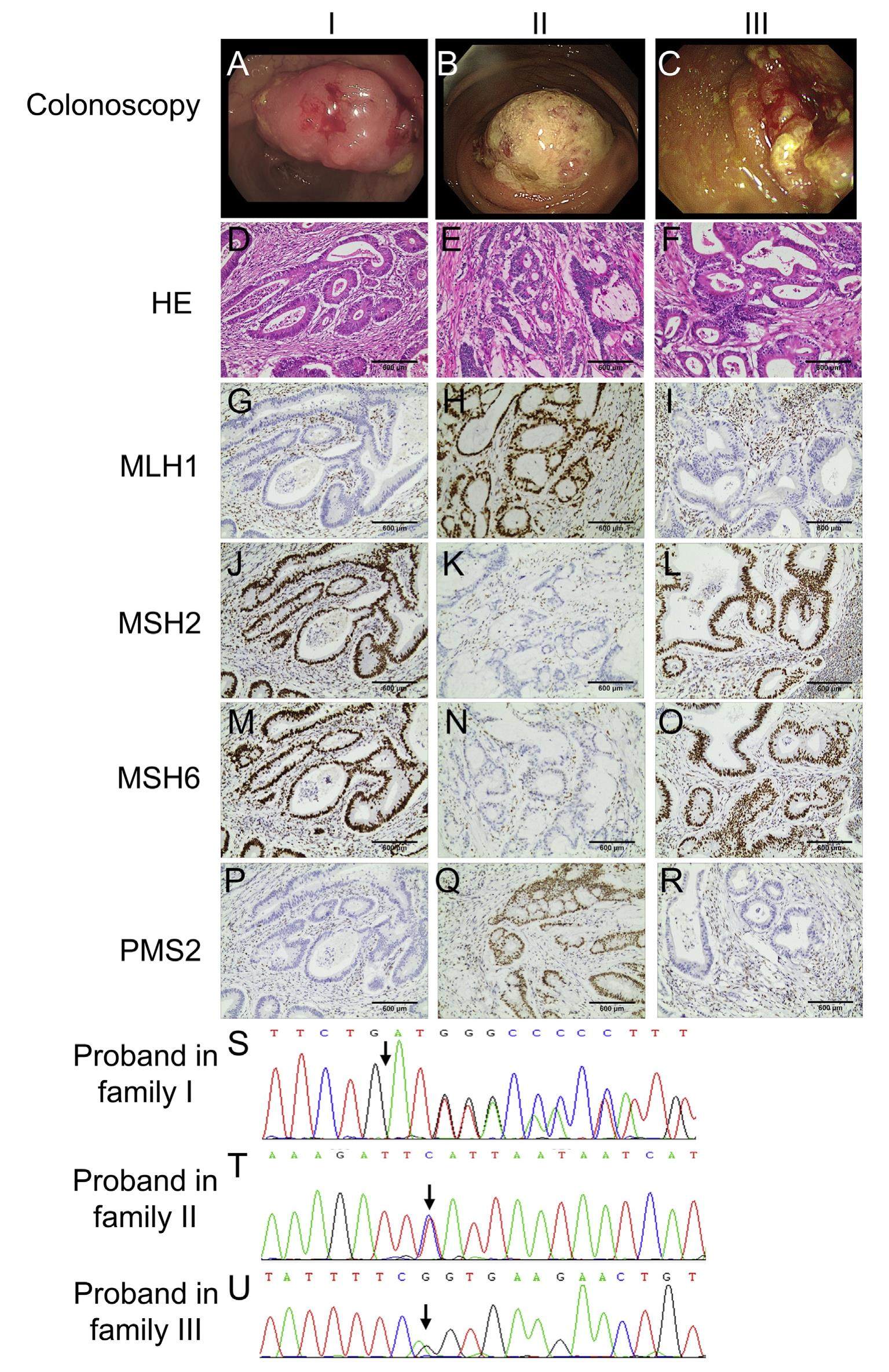
Two novel and one known pathogenic germline mutations in MMRs in Chinese families with Lynch syndrome


Lynch syndrome (LS) is a highly penetrant inherited cancer predisposition syndrome, characterized by autosomal dominant inheritance and germline mutations in DNA mismatch repair (MMR) genes, including MLH1, MSH2, MSH6 and PMS2. This study aimed to analyze the molecular defects and clinical manifestations of three LS families and propose individual prevention strategies suitable for mutation carriers in different families. The pathogenic gene mutations in each family were identified based on immunohistochemistry results combined with wholeexome sequencing, and the above gene mutations in the other family members were detected using Sanger sequencing. Two novel mutations (c.1927_1936del, p.I643fs and c.1668-2A > G) in the MLH1 gene and a known mutation (c.C2228T, p.S743L) in the MSH2 gene were identified, as pathogenic mutations for LS based on the sequencing data and pattern of tumorigenesis in the family members. The three mutations caused frameshift mutation and abnormal splicing of MLH1, as well as base replacement of MSH2, resulting in reduced mismatch repair activity of the MLH1 and MSH2 proteins. The findings expand the spectrum of known germline mutations of the MMR gene in the Chinese population, and reaffirm the importance of genetic testing for LS.
